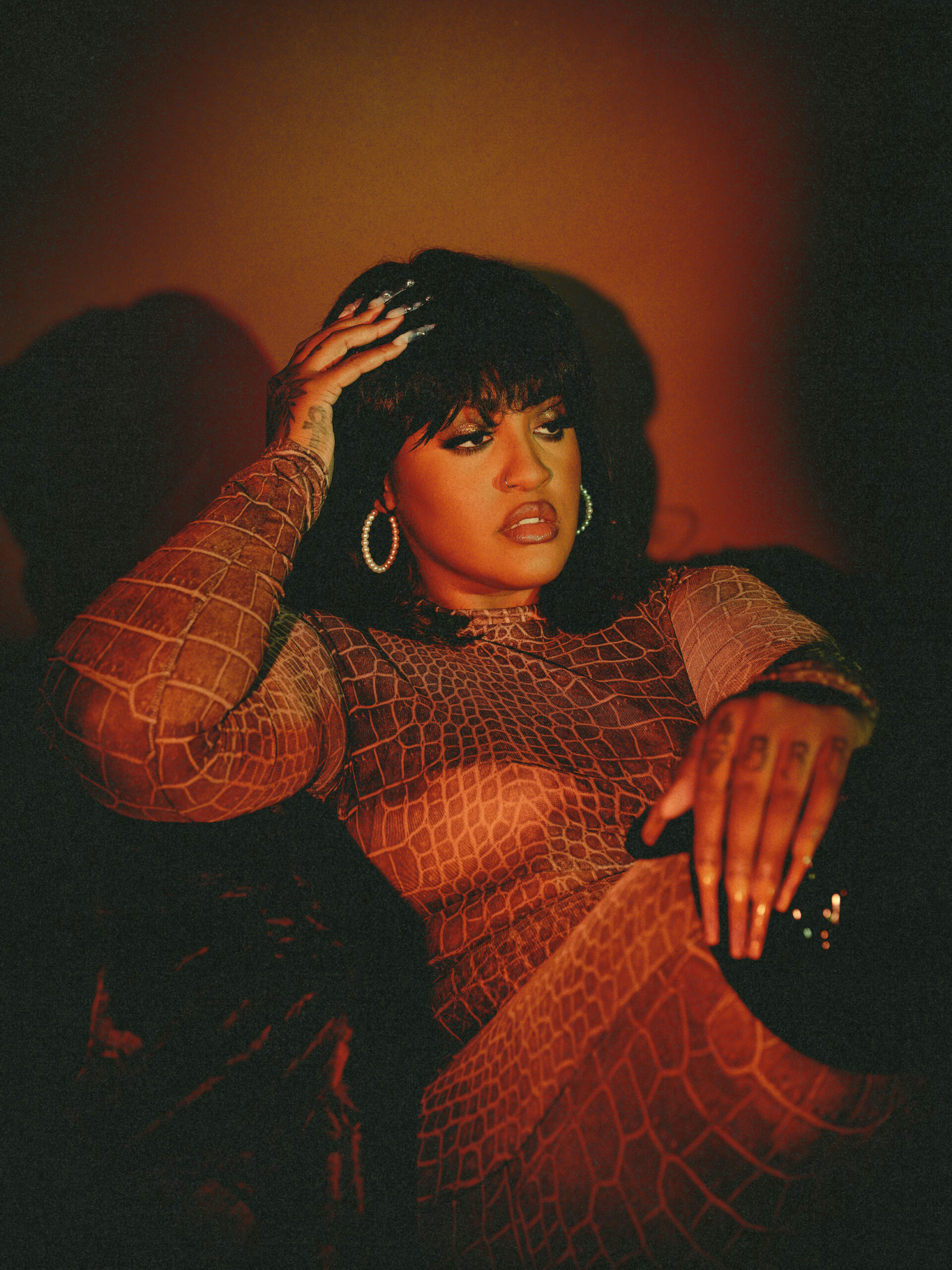These Black women hip-hop and R&B artists from the Bay Area
have no issues taking the industry by storm. Here’s how they’re
working to keep their local community on music’s world map.
This year marks the 50th anniversary of hip-hop. Undoubtedly, the Bay Area hip-hop music scene has made massive contributions to this broader zeitgeist since its inception in the 1980s. Too Short, E-40, and Mac Dre were among the first to set this tone, each revered for their storytelling raps detailing ghetto life across the Bay Area, but more specifically, Vallejo and East Oakland.
I’m from the Fruitvale district, affectionately known to some as the “Murder Dubs”—an area that ranges from the 20th to 29th avenues in East Oakland. It’s intertwined with International Boulevard, synonymous with the prostitution of underage girls and rampant drug use, especially during the crack epidemic. Although it’s improved some since that era, Oakland is still plagued with murders, homicides, car break-ins, and sex trafficking. But despite the city’s shortcomings, native Oaklanders and newcomers still find a sense of pride and belonging, due to Oakland’s rich culture, delicious food, and unmatched community.
The grittiness of my hometown always fascinated me—and our women rappers and songstresses even more so. Surviving a turbulent city, avoiding predators, and overcoming difficult at-home circumstances translated to powerful music. The tough nature of these women artists was always met with a level of tenderness that only profoundly painful experiences could bring. Combining the two always makes me think of Keyshia Cole, a Bay Area legend in her own right.
Rayana Jay, a Bay Area songstress from Richmond, California, reminds me of Cole because of her attention to powerful, thought-provoking lyrics that split you wide open. Case in point: Jay’s 2022 song, “Unfair,” which has lyrics that perfectly describe the ups and downs of a complicated love affair. She tells Sweet July, “I am a lyricist. What sets me apart is that I have a melody, but I’m sure if you were to give me a little hip-hop beat and if I were to say my lyrics, I could be up there with many great hip-hop artists. Hip-hop is definitely one of my biggest inspirations.”
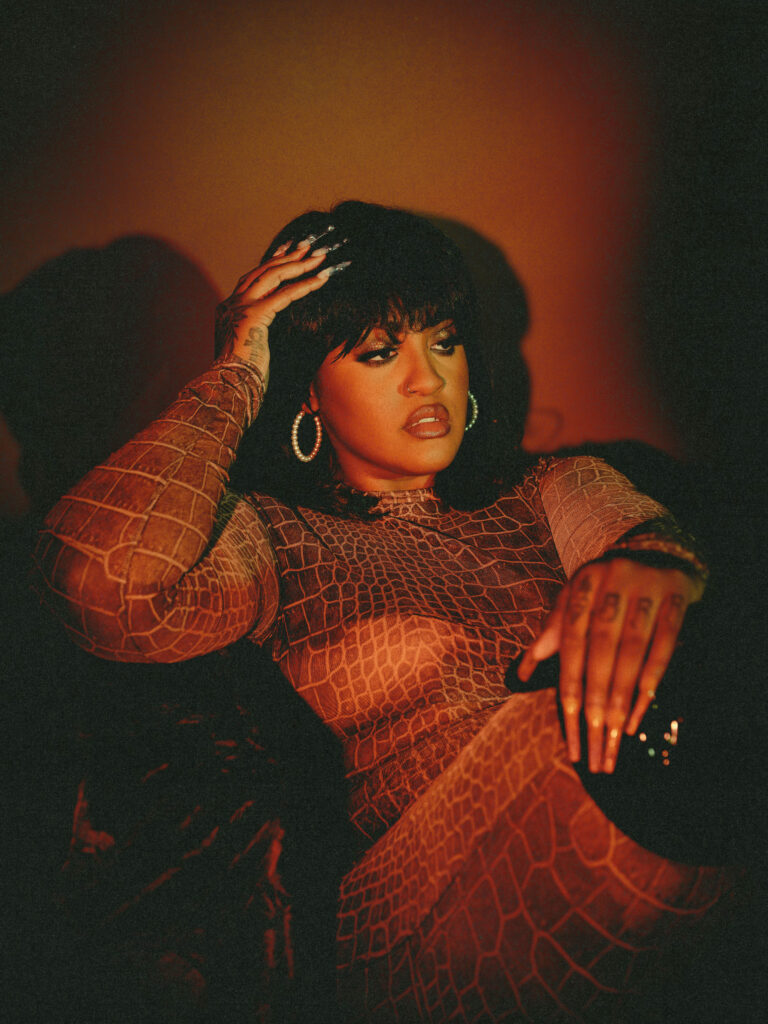
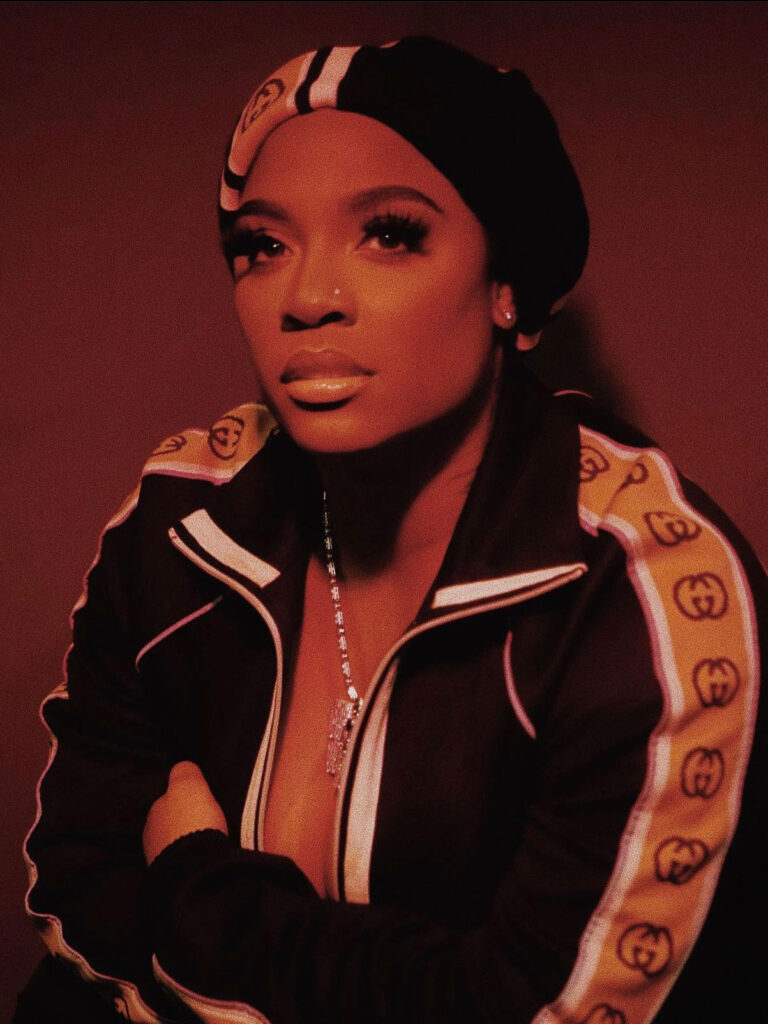
When I listen to Jay’s music, it often brings me right back to when I heard Cole for the first time. I was riding in my mother’s car when her chart-topping hit, “I Changed My Mind,” played on 106.1 KMEL. I thought, “What did she go through to make her voice sound like that?” Aside from her searing vocals, the tracks felt uniquely Oakland-made, with hip-hop-infused beats. Cole’s debut album, The Way It Is, perfectly combines sultry R&B, hip-hop heat, and the hyphy movement.
The hyphy movement appeared on my radar at Berkeley High School as a freshman in 2006. I remember downloading Mistah F.A.B.’s “Ghost Ride It” on my limegreen iPod. Although I enjoyed the bravado and energy of the movement, I always wondered where the female Bay Area rap artists fit into the mainstream landscape.
Kamaiyah came on the scene in 2016, 10 years after the hyphy movement took off nationwide, and my question was answered. Kamaiyah’s first album, A Good Night in the Ghetto, is a cohesive project that centers on storytelling. Throughout the album, she depicts the nuances of growing up as a young Black woman in Oakland— the struggles and good times, as well as broader themes such as death, abandonment, and sex—that can resonate with everyone. In addition to her melodic hooks, she creates captivating imagery through poignant lyricism. In her 2016 song, “For My Dawg,” for example, she talks about her best friend, Cocaine James, slowly dying from cancer.
Intentional lyricism is something that Kamaiyah prides herself on, which has allowed her music to be widely consumed and understood by communities outside of the Bay Area. “I feel blessed enough to reach the mainstream masses because I have a melodic sound that makes people get involved,” Kamaiyah tells Sweet July. “I also don’t just speak about lyrical content that pertains to people in the neighborhood.”
Like Kamaiyah, Tia Nomore, a rapper, actress, and mother, has a unique approach to her music. She describes it as “nostalgic, empathetic, heartfelt, and sometimes emotionally intellectual.” Nomore’s sound is also remarkably confident, with a touch of the bravado that felt like it was missing in the early aughts. She notes that it comes from being from Oakland or the “soil” or “field,” as natives like to say.
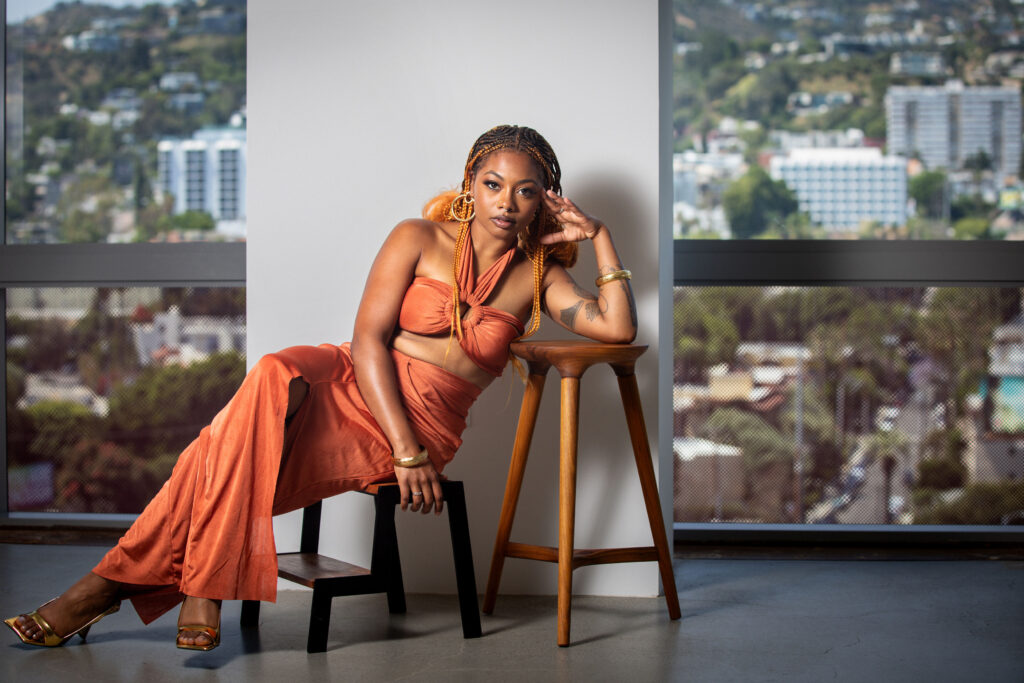
“I think confidence is one of those things that you have to have in the Bay Area, especially as a Black woman,” says Nomore. “You can’t be walking around frail. People can smell that on you and can be predatorial. You must have some type of sharpness about you around here that’s imperative to your livelihood.”
Nomore continues, “Whenever I lay down my experiences on the track, it’s my law, it’s my code of conduct, my moral code that I want to extend to somebody else.” In her 2018 song “Win/Win,” she displays prideful independence: “If I can get it on my own, I’ma run it up.”
The fascinating thing about Oakland is that the city has two extremes: Hip-hop artists boil it down to “pimps” and “Panthers,” referring to the complexities between the radicalism that has historically uplifted our communities (the “Panthers”) and the slick street talk and criminal behavior that eroded it (the “pimps”). Most who live in Oakland can be found on either side of the spectrum. Others find themselves directly in the middle.
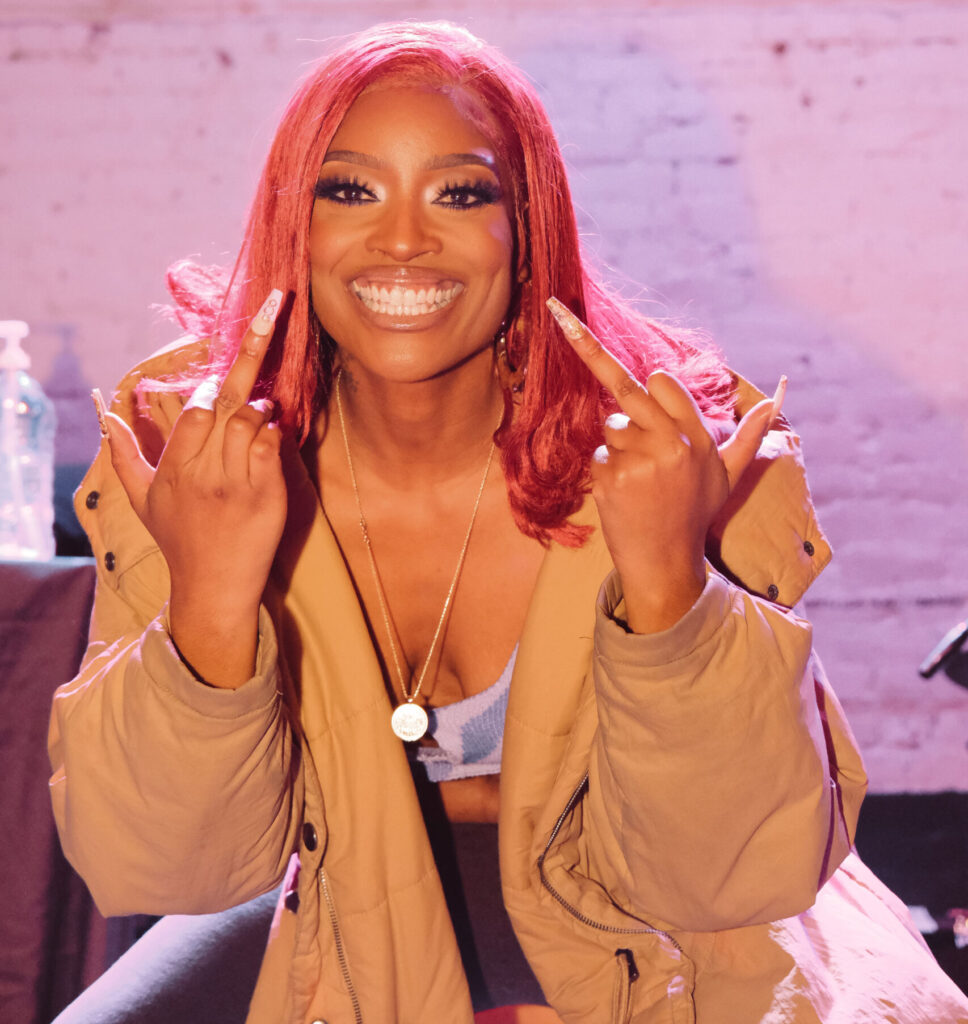
Rapper Stoni has seen the positive and negative effects of this spectrum. She also grew up in the “Dubs” and has seen a lot, so she leaned on music as an outlet. “My music reflects my thoughts and the things I saw in my environment daily,” she reveals.
Outside of her initial environment, her rap sisterhood helps Stoni continue on in this fickle industry—most of the Bay Area–based women hip-hop artists know and respect each other. “Tia Nomore and Alien Mac Kitty are two women I respect in this field because, lyrically, they hold it down and tap into something very personal when they write their music,” says Stoni. “It’s very much a ‘you can’t shake me,’ type of vibe, very sure of who I am. That’s how I see myself. I know I’m here; I stand on everything I say. You know, women in the Bay Area tend to be more like that; they tend to be more real.”
